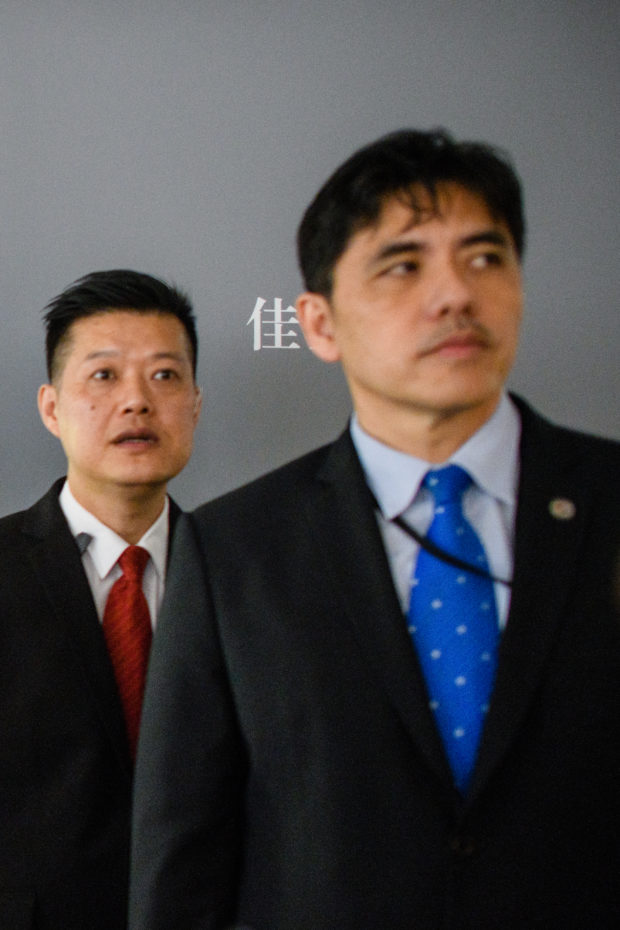US charges former CIA agent with spying for China

This picture taken on October 13, 2017, shows a man (R, wearing blue tie) identified by local Hong Kong media as former CIA agent Jerry Chun Shing Lee standing in front of a member of security at the unveiling of Leonardo da Vinci’s ‘Salvator Mundi’ painting at the Christie’s showroom in Hong Kong.
The former CIA agent arrested in the United States earlier this week on suspicion of helping Chinese spies was a security guard at Christie’s in Hong Kong, the auction house said January 18. Hong Kong resident Jerry Chun Shing Lee, a naturalised US citizen also known as Zhen Cheng Li, was arrested late Monday after he arrived at JFK International Airport in New York. / AFP PHOTO / Anthony WALLACE
The US Justice Department announced Tuesday it had indicted a former CIA operative for spying for China, in a case that could be tied to the dramatic collapse of the CIA’s China network eight years ago.
Three years after he left the CIA in 2007, Jerry Chun Shing Lee took money from Chinese intelligence officers in exchange for information “relating to the national defense of the United States,” the Justice Department said.
Lee, 53, a naturalized US citizen who was at the time resident in Hong Kong, was given information requests by the Chinese agents and hid the cash payments he received.
He was arrested in January. According to a warrant made public at the time, FBI agents had discovered in Lee’s luggage, during a court-authorized search in 2012, notebooks with the names, contacts and other details on covert CIA employees and informants.
In voluntary interviews with FBI agents in 2012, Lee, who spent 14 years at the CIA, admitted preparing a classified document for the Chinese agents.
But nearly six years elapsed before he was arrested.
Lee was charged Tuesday with one count of conspiracy to gather or deliver national defense information to aid a foreign government, and two counts of unlawfully retaining documents related to the national defense.
Officials have not said why it took so long to bring charges against Lee, nor detailed what materials he gave to the Chinese agents.
But the case takes place amid widespread concern in the US intelligence community that Beijing has been able to cripple their operations in China.
The New York Times reported last year that starting in 2010, to the end of 2012, the Chinese killed “at least a dozen” sources the CIA had inside China and imprisoned six or more others.
A hunt for a “mole” in the agency led to one person, a “former operative” now living elsewhere in Asia, the Times said. But there was not enough information to arrest him.
But others in the agency blamed sloppy work and not a mole, the Times added. /muf